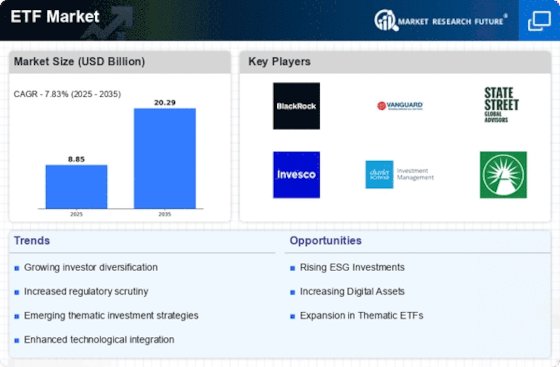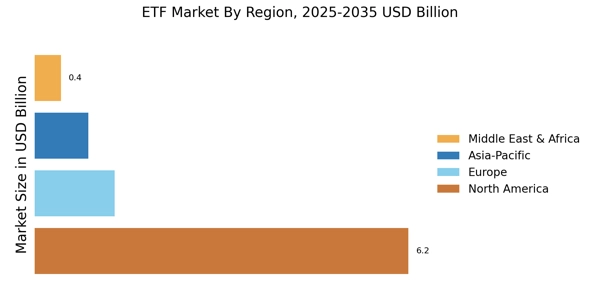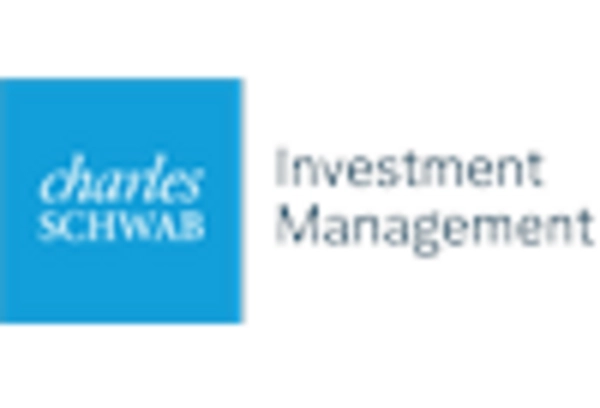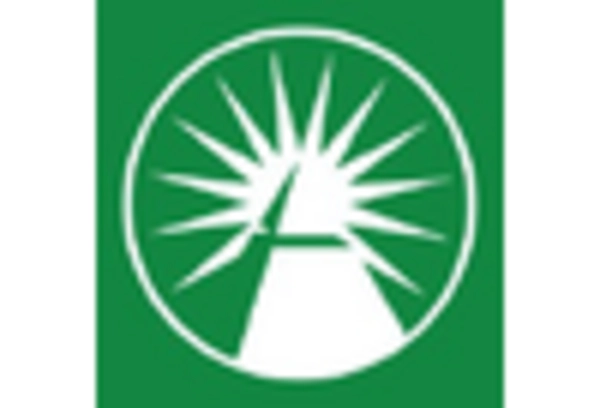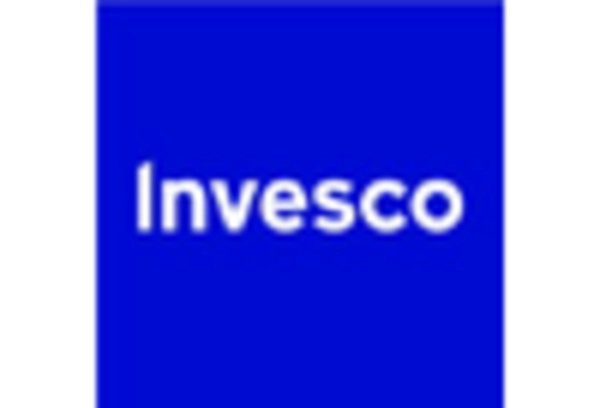Increased Regulatory Support for ETFs
Regulatory frameworks surrounding the ETF Market have evolved to become more supportive, fostering an environment conducive to growth. Recent initiatives by regulatory bodies aim to enhance transparency and investor protection, which may bolster confidence in ETF investments. For instance, the introduction of streamlined approval processes for new ETFs has led to a surge in product launches, with over 1,000 new ETFs introduced in the past year alone. This regulatory support not only encourages innovation within the industry but also attracts a broader range of investors, including those who may have previously been hesitant to engage with ETFs. As regulations continue to adapt to the changing financial landscape, the ETF Industry Market is likely to benefit from increased participation and investment inflows.
Rising Investor Demand for Diversification
The ETF Market appears to be experiencing a notable increase in investor demand for diversification. As investors seek to mitigate risks associated with concentrated portfolios, ETFs offer a practical solution by providing exposure to a wide array of asset classes and sectors. In 2025, the number of ETFs available has surpassed 8,000, reflecting a growing trend towards diversified investment strategies. This proliferation of options allows investors to tailor their portfolios according to their risk tolerance and investment goals. Furthermore, the ability to invest in international markets through ETFs enhances diversification opportunities, making them an attractive choice for both retail and institutional investors. Consequently, this rising demand for diversified investment solutions is likely to drive growth within the ETF Industry Market.
Shift Towards Passive Investment Strategies
The ETF Market is experiencing a pronounced shift towards passive investment strategies, as investors increasingly favor index-based products over actively managed funds. This trend is underscored by the fact that passive ETFs have captured a significant share of total ETF assets, accounting for over 75% of the market in 2025. Investors are drawn to the lower fees and consistent performance associated with passive strategies, which often outperform their actively managed counterparts over the long term. Additionally, the rise of robo-advisors and automated investment platforms has facilitated access to passive ETF investments, further propelling this trend. As the preference for passive investing continues to grow, the ETF Industry Market is poised for further expansion, driven by the increasing adoption of index-based investment solutions.
Growing Popularity of Low-Cost Investment Options
The ETF Market is witnessing a growing preference for low-cost investment options, driven by the increasing awareness of fees and their impact on long-term returns. In 2025, the average expense ratio for ETFs has decreased to approximately 0.4%, making them an appealing choice for cost-conscious investors. This trend is particularly evident among younger investors who prioritize low fees and transparency in their investment choices. The competitive landscape among ETF providers has further contributed to the decline in costs, as firms strive to attract assets by offering lower fees. As more investors recognize the benefits of low-cost investing, the ETF Industry Market is likely to experience sustained growth, with an influx of capital directed towards cost-efficient ETF products.
Technological Innovations in Trading and Analytics
Technological advancements are reshaping the ETF Market, particularly in trading and analytics. The integration of artificial intelligence and machine learning into trading platforms has enhanced the efficiency and accuracy of ETF transactions. In 2025, it is estimated that over 60% of ETF trades are executed through algorithmic trading, which streamlines the process and reduces costs for investors. Additionally, sophisticated analytics tools provide investors with real-time data and insights, enabling them to make informed decisions regarding their ETF investments. This technological evolution not only improves the trading experience but also attracts tech-savvy investors who are increasingly looking for innovative solutions in the ETF Industry Market. As technology continues to advance, it is likely to play a pivotal role in shaping the future of ETF investing.


